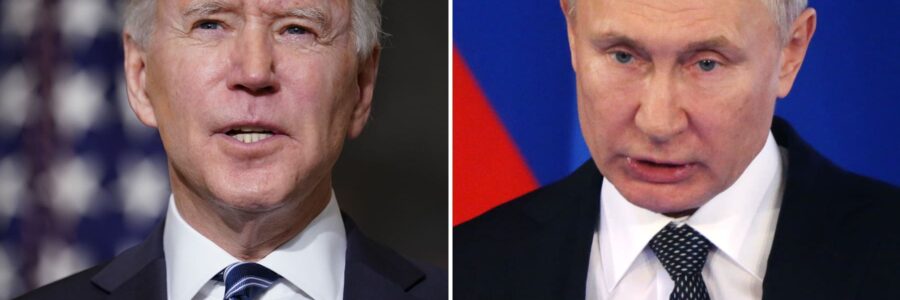
Energy expert Dan Yergin says the U.S. is looking for a way to 'peel Russia back' from China
- The U.S. wants Russia to pivot away from China, and may be showing flexibility on sanctions as an "olive branch," according to Daniel Yergin, vice chairman of IHS Markit.
- Washington on Wednesday imposed sanctions on some vessels and entities involved in the construction of the Nord Stream 2 pipeline that would bring natural gas from Russia to Germany.
- But some sanctions were waived "in the national interest of the United States," a press statement from the U.S. State Department said.
The U.S. wants Russia to pivot away from China, and may be showing flexibility on sanctions as an "olive branch," according to Daniel Yergin, vice chairman of IHS Markit.
Washington on Wednesday imposed sanctions on some vessels and entities involved in the construction of the Nord Stream 2 pipeline that would bring natural gas from Russia to Germany.
But sanctions against the company running the project, its CEO Matthias Warnig and its corporate officers have been waived "in the national interest of the United States," a press statement from the U.S. State Department said.
While the company is German, its CEO is an ally of Russian President Vladimir Putin.
Reuters reported that Russian Deputy Foreign Minister Sergei Ryabkov had indicated the waiving of those sanctions may help normalize ties between the U.S. and Russia.
Yergin described this as an "olive branch" to encourage Russia to back away from China at a time where U.S.-Russia relations are tense.
"That is, I think, a priority strategy for this administration," he told CNBC's "Street Signs Asia" on Thursday.
U.S. Secretary of State Antony Blinken met Russian Foreign Minister Sergei Lavrov on Wednesday at the sidelines of an Arctic Council ministerial meeting and acknowledged the differences between Washington and Moscow, but said the two sides can still work together.
Russia-China relations
Ties between Moscow and Beijing have deepened in recent years, with the two countries cooperating on economic, political and defense issues.
The countries' space agencies also signed a memorandum of understanding in March this year, committing to creating a new lunar space station.
Yergin said Putin has been "increasingly estranged from the West" since the annexation of Crimea from Ukraine in 2014.
On the other hand, China is a growth market for Russia, and Putin and Chinese President Xi Jinping are "like-minded about what they call absolute sovereignty," he said.
Being flexible on sanctions is partly a U.S. strategy to "peel Russia back from its … growing alliance with China" despite difficulties between Washington and Moscow, said Yergin.
U.S. objects against Nord Stream 2
The U.S. has long voiced objections against the pipeline project, and Yergin said the Biden administration's decision to waive certain sanctions would not go down well with lawmakers.
"One of the few things that unites Democrats and Republicans is wanting to put sanctions on Russia," he said.
A press statement attributed to Blinken said the U.S. will "continue to oppose the completion of this project, which would weaken European energy security and that of Ukraine and Eastern flank NATO and EU countries."
But Yergin said the Biden administration probably realizes that it is not possible to keep Russian gas out of Europe.
"It's just the question of how the gas is going to go there," he said.
The waiving of sanctions may also strengthen relations with Germany, he added.
Source: Read Full Article